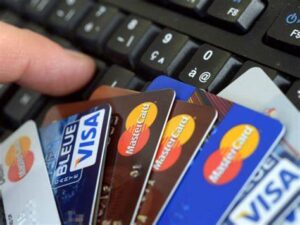Steps Online Businesses Can Take to Avoid Fraud
As the world increasingly moves online, so too do opportunities for fraudsters. Online businesses are particularly vulnerable to fraud, as they tend to have more customers and transactions than brick-and-mortar businesses. There are several steps online businesses can take to avoid fraud, however. The first step to avoiding fraud is being able to identify fraud.
How to Identify Potential Fraud
There are many ways to identify potential fraud. Here are some common indicators:
-Unusual or unexpected behavior from an employee, vendor, customer, or another business partner
-Sudden changes in financial status or position
-Attempts to conceal information or evade questions
-Unexplained discrepancies in records or documentation
-Lack of cooperation in an internal investigation
If you see any of these indicators, it’s important to take action. First, try to get more information. If the person refuses to provide information or continues to act suspiciously, you may need to contact law enforcement.
Fraud can be difficult to spot, but it’s important to be on the lookout for any potential red flags. If you think someone might be committing fraud, don’t hesitate to take action. The sooner you can address the issue, the better.
10 Ways How Online Businesses Can Avoid Fraud
Online businesses are more susceptible to credit card fraud than brick-and-mortar businesses. Below is a list of 10 ways that businesses can avoid credit card fraud.
- Use secure payment processors: When you’re selling products or services online, it’s important to use a secure payment processor. This will help protect you and your customers from fraud. There are a number of different payment processors out there, so be sure to research them before choosing one.
- Use strong security measures: When setting up your online business, be sure to implement strong security measures. This includes things like using a secure server, setting up firewalls, and using encryption for sensitive data.
- Keep your software up to date: One of the best ways to avoid fraud is to keep your software up to date. Make sure you’re using the latest versions of all your software, including your operating system, web browser, and any plugins or add-ons you might be using.
- Use secure passwords: Another important way to avoid fraud is to use strong passwords for all your accounts. Avoid using easily guessed words or phrases, and don’t reuse passwords across different accounts.
5.Monitor your activity: It’s also a good idea to closely monitor your activity online. This includes keeping an eye on your credit card and bank statements, as well as monitoring any unusual activity on your website or social media accounts.
- Be aware of phishing scams: Phishing scams are a common type of fraud that involves someone trying to trick you into giving them personal information or money. Be very careful about any emails or messages you receive that ask for sensitive information or money.
- Don’t click on suspicious links: Another way to avoid fraud is to be careful about the links you click on. If you’re not sure whether a link is safe, don’t click on it.
- Use anti-virus and anti-malware software: Be sure to install anti-virus and anti-malware software on all your devices. This will help protect you from malware and other malicious software that could be used to commit fraud.
- Keep your personal information private: When setting up any online accounts, be sure to keep your personal information private. This includes things like your home address, phone number, and social security number.
- Be cautious about giving out information: Finally, be very cautious about giving out any personal information online. This includes things like your credit card number or bank account information. Only give out this information to trusted websites and businesses.
By following these tips, you can help protect yourself and your business from fraud. Remember, if you’re ever in doubt about something, it’s always better to err on the side of caution.
Does Your Credit Card Processing Provider Provide Fraud Protection?
When it comes to credit card processing, one of the most important things to consider is fraud protection. After all, no business wants to be the victim of fraudulent charges. But how can you know if your credit card processor is providing adequate fraud protection?
Here are a few things to look for:
- Data encryption. Your credit card processor should encrypt all sensitive data, including customer information and credit card numbers. This will make it much more difficult for criminals to steal this information and use it for fraud.
- Fraud monitoring. Your processor should constantly monitor for suspicious activity and quickly flag any potential fraudulent charges.
- Chargeback protection. If a chargeback does occur, your processor should help you fight it and minimize the financial damage to your business.
Make sure to ask about fraud protection when you’re shopping for a credit card processor. It’s an essential service that can protect your business from costly chargebacks and other problems.
Need to Update Your Credit Card Provider
If you are looking to update your credit card provider to get one that offers the above features to prevent fraud Balanced Processing Partners can help. We partner with multiple types of credit card processing providers so we can find one that meets your business needs and budget. Please reach out to us to discuss details at (508) 354-6256 or via email at [email protected].

